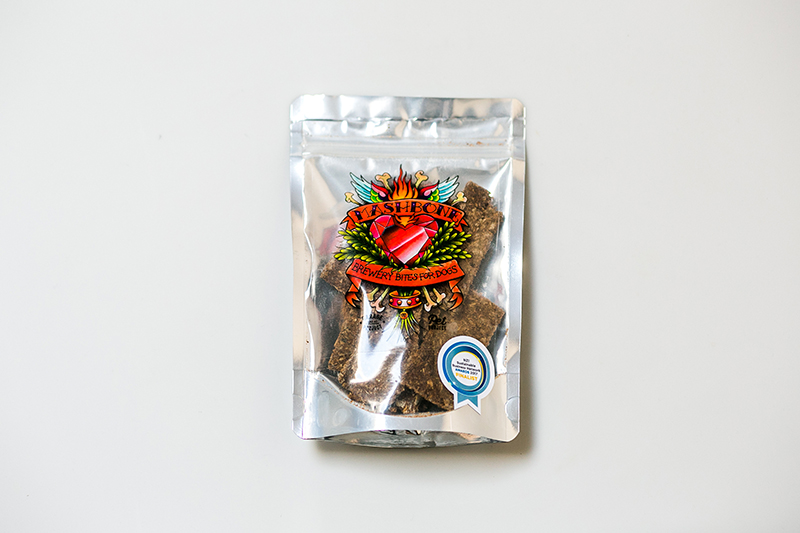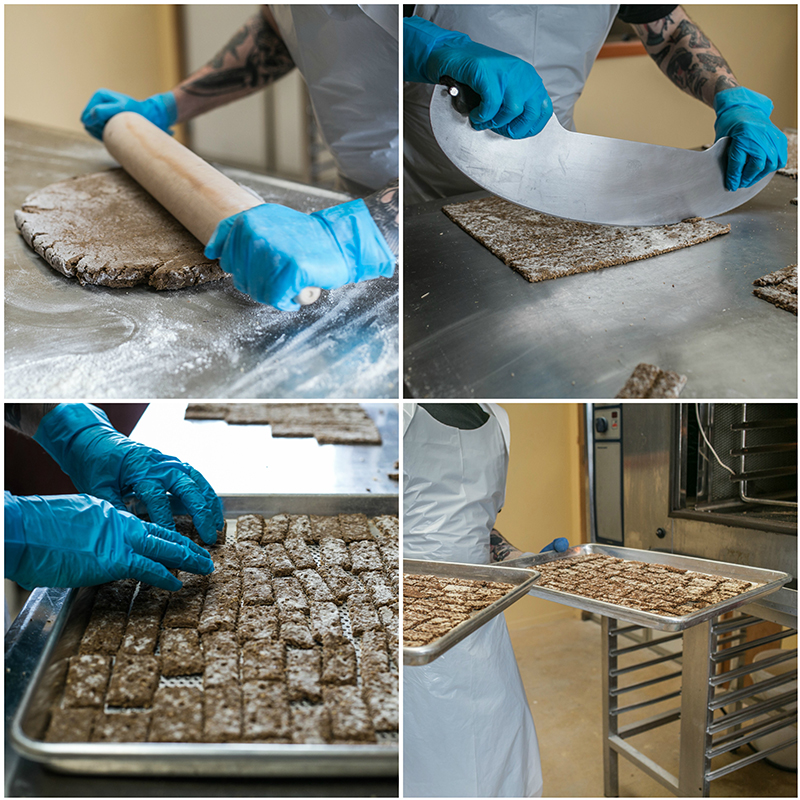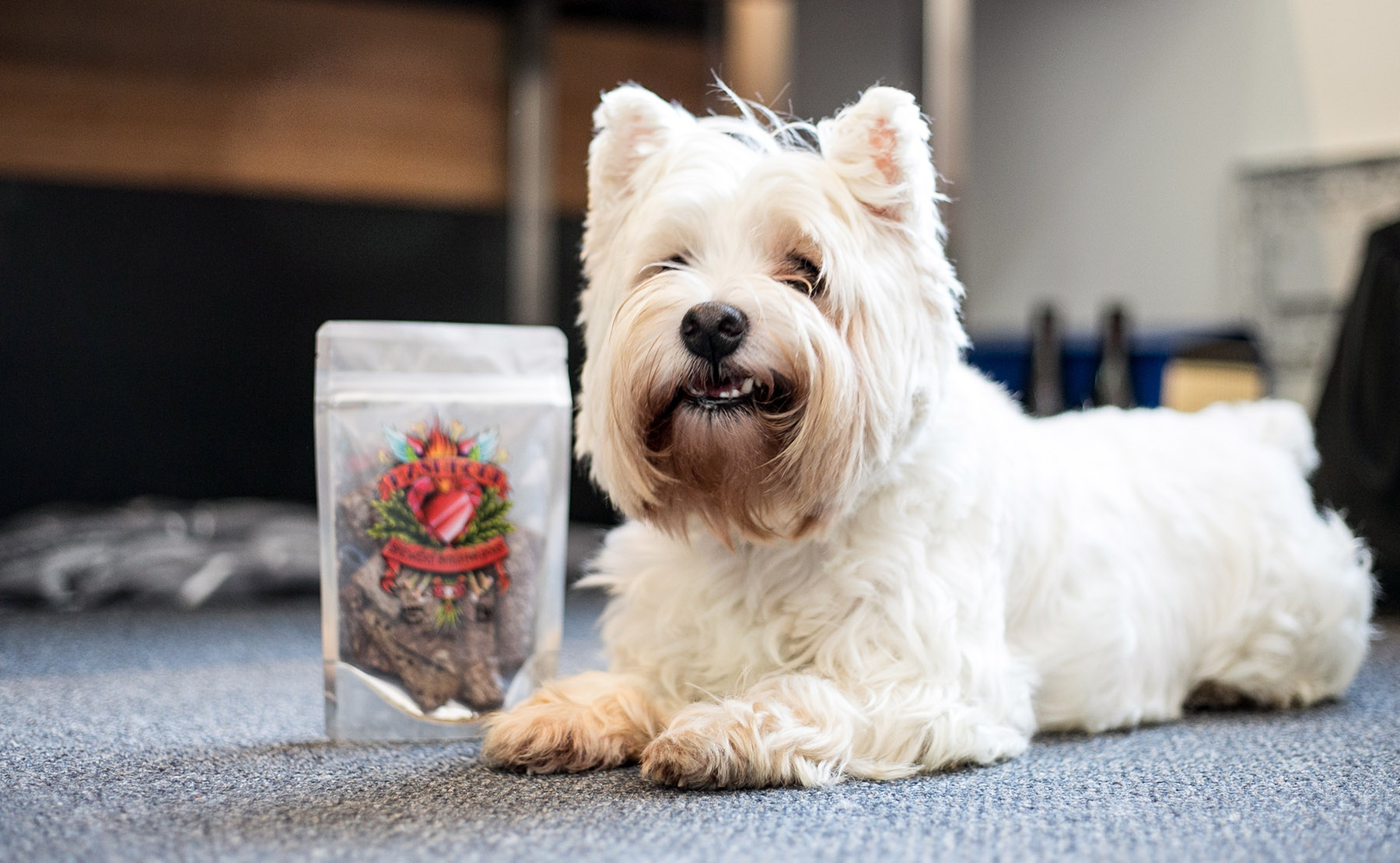Now I know that a good many of you will be familiar (perhaps too familiar!) with Wellington brewery Garage Project’s appetising range of beers but were you aware that they’ve branched out into delectable treats for dogs as well? ‘Now why would a brewery start catering to pets?’ I hear you ask – and that’s a good question because, as a rule, companies who specialise in one form of product, generally don’t tend to move into unknown territory. It can be risky, it can be a distraction and it often involves product development in an area that is completely unfamiliar. However, Garage Project has proven that – if done properly – it can indeed work well…
Garage Project is a small brewery that, as part of its brewing process, produces malted barley (or mash). As good corporate citizens, the company has been distributing its leftover barley to a local community garden to be used as compost and provided farmers with the balance as feed. This arrangement works well but, being a company that likes to push boundaries (they are, after all located in an old petrol station in the Aro Valley), Garage Project thought that there were unexplored opportunities that could be capitalised on with their malted barley by-product. Oh, and the company is heavily represented by brew dogs and dog lovers and that’s where we come in.

Garage Project representatives met with the Bioresource Processing Alliance (BPA) and the reps outlined their interest in creating nutritious treats for dogs based on their malted barley secondary stream. Pet ‘treats’ are generally regarded as food that should be given to animals on a limited basis, however, Garage Project knew how much goodness was in the high protein, high fibre spent mash but needed someone with expertise in animal nutrition to help them develop a product that was both palatable and balanced for dogs.
BPA food technologists and veterinary scientists from AgResearch and Massey University combined forces to invent and refine a recipe, using the barley mash, combined with grass-fed beef and free-range eggs. Garage Project also teamed up with Wellington’s Rosa Foods to manufacture the product and Mashbone Brewery Bites for Dogs.
The brewing process involves lightly crushing the grain and mixing with hot water to extract the sugars for the beer. What remains is spent barley, with the sugar extracted, leaving a high protein, high fibre energy source – a highly valuable raw material. The Mashbone Brewery Bites resemble gourmet crackers and with some slick branding and clever marketing, the product is proving to be a winner with dogs who hound their owners to bring them back some when their owners are picking up their favourite six-pack of beer.
It’s one thing for a company to believe that their product concept will be healthy and liked by end users but it is smart business practice to bring in some extra support if you want to be sure and/or don’t have the skills in-house to prove that this is actually true. It’s a useful marketing tool to have a product innovation backed up by external experts who are independent and qualified in the specific area you are stepping into. Rosa Foods made the Bites look appealing in the package, while the scientists at Massey and AgResearch were able to conduct nutrition analyses, palatability trials and hone the recipe to cater to the animals’ preferences. The Brewery Bites are not only found to be delectable by the dogs but they also provide supplementary benefits for their bones and joints. Demonstrating this to customers would have proved difficult had Garage Project not involved scientists and an experienced manufacturer which has clearly been advantageous for the company, as sales escalate.

What I like is that Garage Project is focused on managing the full life cycle of their products, creating sustainable and natural offerings, without preservatives and fillers – a worthy cause that is obviously a winner with customers (they ranked top of Deloitte’s Fast 50 in 2015). It’s an advantageous policy to use a ‘clean labelling’ approach (wholesome ingredients, no artificial ingredients or allergens, etc), as this is something that consumers are crying out for, but it further pushes a product up the value chain if the ingredients are also premium (locally sourced, organic or free-range, for example). Combining these benefits with recommendations from credible experts and the story around whole-of-life-cycle merchandise and a product often soars to the ‘top shelf’ of product land.
The Mashbone Brewery Bites are currently sold in liquor stores, Commonsense Organics, Farro Fresh, liquor outlets, select New Worlds, vet clinics, grooming sites, 4 Squares and Fresh Choice and Garage Project is looking at launching into the US and Australian markets as likely next steps. This is a bold and sensible move and one that will surely pay off as the trend for high quality pet foods has sky-rocketed internationally in recent years.
For a company that is as crystal clear in its marketing and as on point as Garage Project is, it could have been tempting to think that they could go it alone in the development of a product so far removed from their core business but that’s what makes Garage Project successful. To know when to bring in outsiders who can help and to grasp the benefits of why this is important to a company’s long term vision is key. I’m neither a beer drinker nor a dog owner but I have to admire the company’s ability to go large into unchartered territory and see it pay off but for now, I’ll watch with interest for the next product innovations coming out of Garage Project.



Leave a comment